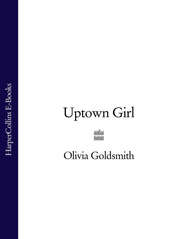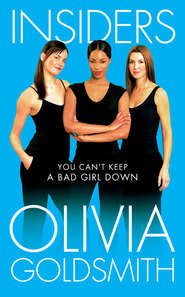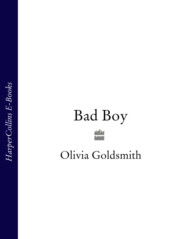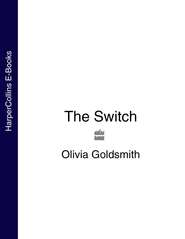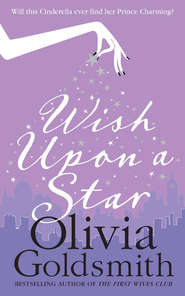По всем вопросам обращайтесь на: info@litportal.ru
(©) 2003-2025.
✖
Bestseller
Автор
Год написания книги
2019
Настройки чтения
Размер шрифта
Высота строк
Поля
“Daniel, Daniel, good to see you,” Alfred Byron roared as he pumped Daniel’s hand. Everything about the man was loud. “Please, Professor, come on into my office.”
The office was wide, as Byron was, and somehow it seemed almost too perfect—rather like the way a movie would depict an agent’s office. There were floor-to-ceiling mahogany bookshelves with glass fronts on three walls, a dazzling antique Persian rug, a leather-covered worn chesterfield, and an enormous desk that was almost as ornate as Alfred Byron was himself.
Even the dust and piles of manuscript seemed placed for effect. Byron wore a strange suit—a kind of dark green color with odd reddish brown pinstripes that looked to Daniel like strings of dried blood. Well, didn’t most writers think of agents as bloodsuckers? The suit was double-breasted with a pocket handkerchief in a paisley print protruding from its pocket. His gray-and-white striped shirt with a white collar was set off by a blue polka-dot tie. It was a very bad imitation of an English gentleman, and it certainly didn’t fool Daniel Gross. The name didn’t fool him either. Alfred Byron had been born Al Boronkin, but Daniel didn’t mind any of the man’s affectations, because Byron was a money player and Daniel wasn’t in this for the art.
Byron sat behind his desk and placed his hands wide and flat upon the sea of mahogany that was his desktop. “So, Professor, what can I do for you? Another seminar, perhaps? I have an idea for one. I thought we could forget some of this sensitive, lyrical bullshit and talk about commercial writing. Let’s tell your little kids what really works. I could put together a panel with some of my clients. Only first-rate. And I could get Publishers Weekly to—”
“It sounds really interesting, Alfred,” Daniel interrupted, forcing himself to use the old charlatan’s first name, “but I really didn’t come here about a seminar. I mean, not this time. I thought that we could talk about this.” He pulled the manuscript out of his new briefcase and set it down in the middle of Byron’s huge desk. Daniel looked up at the agent’s face quickly enough to see his smile fade. Daniel could almost hear the thoughts of dismay behind Alfred Byron’s wide forehead. “Not another schmuck with a manuscript,” he was thinking. But Byron quickly recovered, replacing his consternation with a cold professional smile.
“Well, well, what’s this? You have been busy. A book, huh?”
“It’s not what you think,” Daniel began lamely.
“It’s not a book?”
“What I mean is, it’s not the kind of book you think.” Daniel looked directly at Byron and tried to muster as much force and belief as he could. “It’s a page-turner, Alfred. I swear to God it is.”
The agent nodded his big head sagely. “I’m sure it is, Professor, I’m sure it is.” Byron turned the book toward him but only glanced at the title page. Then he raised his white winged brows. “Jude Daniel?” he asked.
Daniel was about to explain that he had written the book with Judith, but the coolness in the room was so disconcerting that he couldn’t muster up the strength to do it. What sounded lamer than a book written by an untenured college professor? A book written by his wife. “It’s a pen name, Alfred,” Daniel explained.
“Well, Professor, I don’t really read unsolicited manuscripts. And we’re not taking on new writers right now.” Daniel knew that, as well as the rest of the circular ironies in the publishing world: that publishers were always looking for the next new success, while virtually none of them accepted or read new writers’ work. Publishers depended on agents’ submissions, but agents only received 10 or 15 percent of a writer’s income, so they tried to limit their stables to writers who would earn huge advances. And most of the agents didn’t take on new clients. So how was a new writer to get published, and how were publishers going to find the next new thing?
“I’d be happy to take a look at it,” Byron said. Daniel realized it was unlikely. Most agents employed assistants who did the initial read. Byron stood up. He moved around his desk and put his hand on Daniel’s shoulder. It was not so much a friendly gesture as the literary equivalent of a vaudevillian hook. Daniel stood up as he was expected to. “I’ll be happy to take a look at it,” Byron repeated as he walked Daniel to the door. “I’ll get back to you as soon as I possibly can.”
Daniel realized he had badly miscalculated. He was of interest to Byron only as an outlet for his clients, as an academic ego-booster. But Daniel decided to make one more attempt. “Please read it yourself, Alf,” he said. “I promise you, you won’t be disappointed.” He paused. He couldn’t help himself. He had to ask. “And if it is good Alfred, how much could I get for it?”
Byron merely pursed his lips. “Well. One step at a time. Professor. One step at a time.” Byron shook his hand, and Daniel felt more impotent than ever. How many other pathetic, unpublished writers had failed using lines as hackneyed as his? Daniel added the name Jude Daniel to the list.
15 (#ulink_fa5a99b4-f074-553e-8f7f-b596d7bfeff1)
Could any modern publisher contemplate such an undertaking?
—Patrick O’Brian
Gerald sprawled on the Chippendale sofa, Chad Weston’s manuscript in a box on his lap. He had only read seventy-one pages, but he thought he’d read no more. Gerald looked down at the page before him.
He took her severed arm and slowly, lovingly, sliced off each of her fingers. The blood had stopped flowing, but it was still a messy job. His Oyster Rolex was covered in blood—lucky it was waterproof.
He took her arm, now reduced to a fingerless fist, and spread her legs wide, securing them to the sides of the radiator with more wire. He stepped over the pools of blood to keep his Cole Haan loafers clean. Then he took her arm and, using it as a dildo of her own dead flesh, he …
Gerald lay the manuscript down on the coffee table. He felt positively queasy—actually quite sick to his stomach. The book—SchizoBoy—wasn’t just perverse. It was also bad and boring; not an easy trick. Weston had clearly lost his mind. No wonder there had been so much party buzz.
I should have read it earlier, Gerald thought. And why hadn’t Pam told him how grotesque, how utterly vile … sometimes Gerald thought Pam might actually try to sabotage him. Other times he simply thought she was non compos mentis. She probably did like the book.
Gerald knew Chad Weston was a desperate man. He knew it because he himself felt the desperation of having each book he wrote diminish in importance and sales. It was a kind of dwindling, the sign of a writer’s tapering potency. Gerald himself was using an old scandal to get back some of his verve. Chad had picked this one—this obscene, misogynistic hat trick. Its very perversity would get attention in the media. Gerald shook his head. My God, he had already defended this repulsive pile of excrement at publishing functions. If he hadn’t been so busy on his own book, he’d have read this one. The publishing community would tear at him for this decision and despise him if he backed out.
What to do, what to do? His pride would not let him back down, but his taste was deeply offended. For a moment, he thought of the old joke that asked the different definitions between sexy and kinky. The answer was that sexy was when you made love using a feather; kinky was when you used the whole chicken. But this book of Weston’s was way beyond kinky. Gerald added a definition to the joke: Perverse was when you did it to a dead chicken.
Disgusted, Gerald stood up and threw the pages onto the table. He walked over to the window and back, pacing off some of his nausea and anxiety. Time for some legal assistance.
Gerald went to the phone and dialed Jim Meyer’s extension. He tapped his fingers impatiently as he waited for an answer, the words of a Warren Zevon song running through his mind: “Bring lawyers, guns, and money. The shit has hit the fan.” Well, Gerald reflected, he had two out of three—if he could get his hands on Meyer.
At last the phone was answered. “Mr. Meyer’s office.”
“Is he in, Barbara?” Gerald snapped.
“Yes, but he’s in a meeting and—”
“Get him now,” Gerald snapped. It didn’t take more than a minute, and the second Jim got on the line, Gerald dispensed with the small talk. “Jim, we have trouble here. The Weston manuscript is an obscenity. Where do we stand on it?”
“What do you mean?” Meyer asked in the calm, totally annoying way that lawyers did. “Do you mean, where do we stand in regard to the contractual obligation to the author, or in terms of our policy on pornography? Or do you feel the house will be jeopardized? My department vetted it, and I can assure you that—”
“Jim, spare me the blather. Do we have to publish this?”
There was a pause. “You mean you don’t want to do the book at all?”
“That’s right.”
“Hold on. Let me take a look at his contract. Can I get right back to you?”
“Right back.” Gerald strode up and down his enormous office. All writers—with the notable exception of Joan Collins—lived in fear of the acceptance clause. Payment wasn’t made if the book was “unacceptable”; and it was up to the publisher to determine what that consisted of. It was a cudgel, a threat, a sword hanging. Gerald hoped he could use it now. When the phone rang he snatched it up before Mrs. Perkins could get to it. “Yes?” he snapped.
“We’ve accepted it, Gerald. There is an acceptance letter signed by Pam Mantiss and a memo indicating that the acceptance check was not only mailed but also received and cashed.”
“So we have to publish it?”
“We don’t have to. But we have already given him his acceptance check.”
“Goddammit!” Pam had sought out Weston and had seduced him away from his first publisher with a lucrative three-book deal. Then she’d approved of the book. “Christ, how bad is the damage?”
“We’re talking six hundred thousand dollars,” Meyer told him.
Gerald winced. It was a big hit to take, and just at the end of the fiscal year. Gerald didn’t want to do it. What would David Morton say if he knew? The board hated large advances and hated writing them off. What to do, what to do? How in the world had the book gone so far without him looking at it? Christ, he was overextended. There were publishers Who had responsibilities as great as his, and there were authors who sold as well or better, but there were no publishers who were also authors, at least not in his league.
Yet he had to continue the writing. For both the money and the prestige. He simply had to. Not that David Morton liked that either. Nervously, with a little hunching motion of his narrow back, Gerald transferred the phone to the crook of his neck. God, he hated this Weston book. How could he, with any kind of conscience, allow the Davis & Dash imprimatur on a work as totally repellent and simultaneously as nugatory as this one? It was an abomination, and Gerald nearly blushed thinking of what his father would say when he saw the manuscript—as he inevitably would.
On the other hand, squandering the advance and acceptance money was unthinkable, and, to tell the truth, Gerald could not bear the thought of backing down and looking ridiculous in front of the tight little publishing community. He supposed it was better to look tasteless and mercenary than to look stupid.
Well, in one way this was a solution to his problems. The notoriety this book would receive would ensure sales, at least at first. And if those were enough to get it onto the bestseller list, the book would take on a life of its own. Readers today bought what they were told to; if it was on the list and discounted, they bought it.
The money the book would make would be his justification to David Morton, and to his father he’d merely say that he had to live up to his word, though his father would feel Gerald had turned Davis & Dash into a cloaca. Gerald still needed something to pick up the fall list. Maybe with this and the movie of Peet Trawley’s first trilogy coming out he had the beginnings of a chance at squeaking by. Especially if he managed to stir up sales for his own book. He absolutely could not let David Morton and the stockholders know he had made such an egregious error on the Weston thing. He would publish the book and stand behind it.
“Gerald? Gerald, are you still there?” Jim Meyer asked.
“Certainly,” Gerald answered.
PART TWO (#ulink_8a5876b1-cdfc-5106-b250-7fcdc6d09a7c)






